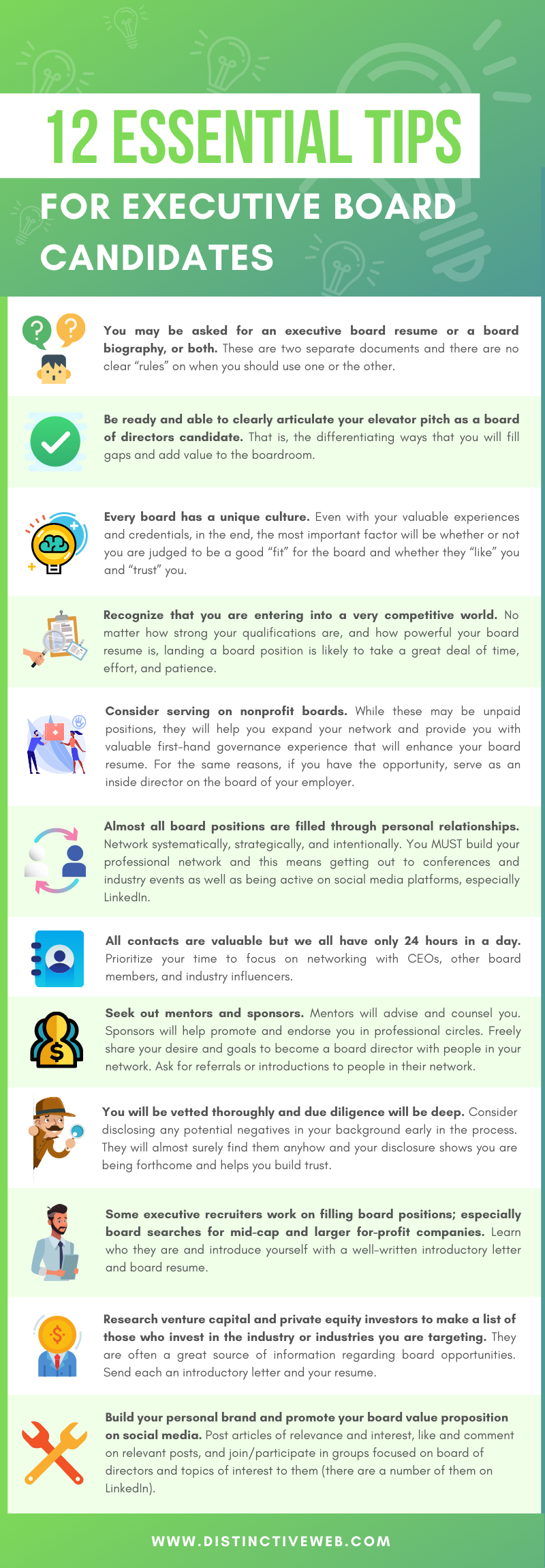
The most desirable and lucrative board of director positions are relatively rare and highly competitive. If you are an executive board candidate hoping to land a board position, here are some tips to improve your competitive edge and position yourself to achieve your goals.

Consistency is the fruit of the tree of success. The more you do something effectively and with a goal in mind, the better you will get at it and the more you will feel fulfilled.

Frequently Asked Questions
What are some tips for executive board candidates?
Some tips for executive board candidates include being able to articulate your unique value, understanding the board’s culture, being patient in a competitive environment, considering serving on nonprofit boards, seeking out mentors and sponsors, being forthcoming about any potential negatives in your background, and building your personal brand on social media.
How can I improve my chances of landing a board position?
To improve your chances of landing a board position, you should clearly articulate your unique value, understand the board’s culture, and build your personal brand on social media. It’s also beneficial to seek out mentors and sponsors who can help promote you in professional circles.
What is the importance of a personal brand for an executive board candidate?
A personal brand is important for an executive board candidate as it helps to promote your board value proposition. This can be done through social media by posting relevant articles, liking and commenting on relevant posts, and joining groups focused on board of directors and topics of interest to them.
How can I gain experience for a board position?
One way to gain experience for a board position is by serving on nonprofit boards. While these may be unpaid positions, they can help you expand your network and provide you with valuable first-hand governance experience that will enhance your board resume.
What should I do if there are potential negatives in my background?
If there are potential negatives in your background, it’s best to disclose them early in the process. This shows that you are forthcoming and helps you build trust. Also, remember to carefully audit and clean up your social media presence as it will be reviewed when you are being considered as a board candidate.
How can I demonstrate my expertise as an executive board candidate?
You can demonstrate your expertise as an executive board candidate by doing things that illustrate your thought leadership and expertise, such as speaking at industry conferences and events and publishing articles, blogs, white papers, and books.









